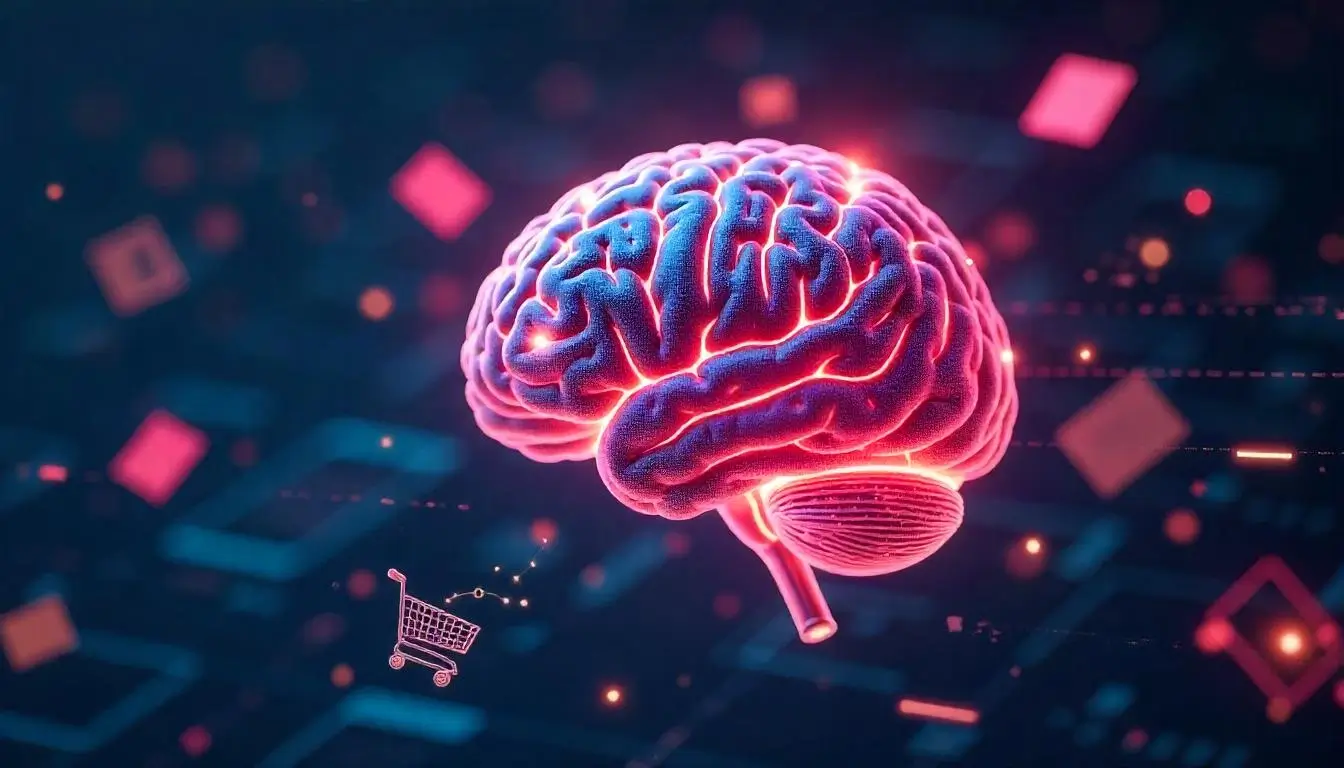How AI Is Revolutionizing Ecommerce in 2025

Artificial Intelligence (AI) is no longer just a buzzword — it’s a driving force reshaping how we buy, sell, and interact in the digital world. As we step further into 2025, the impact of AI in ecommerce is nothing short of transformational. From predictive analytics to smart customer support, AI is bringing ecommerce experiences closer to the intuitive, personalized interactions we’ve always dreamed of.
In this blog, we’ll explore how AI is changing the face of ecommerce, what this means for consumers and businesses alike, and what the future holds. Whether you’re an entrepreneur, marketer, or just curious about tech, this guide is designed to give you an in-depth look at the AI-driven ecommerce evolution.
Table of Contents
- What Is AI in Ecommerce?
- Why AI Matters in 2025
- Personalization and Customer Experience
- AI-Powered Product Recommendations
- Visual Search and Voice Commerce
- AI in Inventory and Supply Chain Management
- Chatbots and Virtual Shopping Assistants
- AI in Ecommerce Marketing
- Fraud Detection and Security Enhancements
- AI for Ecommerce Analytics and Insights
- Case Studies: Brands Using AI Effectively
- Challenges and Ethical Considerations
- What’s Next? The Future of AI in Ecommerce
- FAQ
What Is AI in Ecommerce?
AI in ecommerce refers to the use of artificial intelligence technologies — such as machine learning, natural language processing, computer vision, and deep learning — to automate, optimize, and enhance various aspects of the ecommerce experience.
It touches everything from the customer’s first click on a product to the final delivery — and even beyond, into returns and loyalty programs. Think smarter search functions, automated customer service, hyper-personalized marketing campaigns, and more.
Why AI Matters in 2025
Ecommerce in 2025 is more competitive than ever. Customers expect faster service, better recommendations, and seamless shopping experiences. Businesses, on the other hand, need smarter tools to keep up with evolving demands.
AI offers the perfect solution:
- Speed: Real-time personalization and faster responses.
- Scale: Automation that handles thousands of interactions simultaneously.
- Accuracy: Predictive tools that improve decision-making and inventory control.
- Innovation: New ways to engage users, from AI influencers to immersive shopping experiences.
Personalization and Customer Experience
One of the most visible impacts of AI in ecommerce is hyper-personalization. AI algorithms analyze customer data — past purchases, browsing habits, clicks, demographics — and deliver unique shopping experiences.
How It Works:
- Recommending products based on browsing behavior.
- Changing homepage layouts based on user profile.
- Sending dynamic email content personalized for each recipient.
Benefits:
- Increased conversion rates.
- Higher customer satisfaction.
- Better customer retention.
AI-Powered Product Recommendations

Gone are the days of static product suggestions. AI uses collaborative filtering and deep learning to predict what a shopper might want next.
Example:
Amazon’s recommendation engine drives 35% of its revenue — and it’s powered by AI.
Technologies Used:
- Neural networks
- Predictive analytics
- Real-time data streams
Visual Search and Voice Commerce
In 2025, shoppers are searching with images and talking to their devices more than ever. AI enables platforms to interpret these inputs and return accurate results.
Visual Search:
Users snap a photo of a product and find similar items instantly.
Voice Commerce:
Assistants like Alexa and Google Assistant guide users through purchases.
Benefits:
- Frictionless search experience
- Accessibility for differently-abled users
AI in Inventory and Supply Chain Management
Behind the scenes, AI optimizes inventory levels, predicts demand, and even finds the most efficient delivery routes.
Key Features:
- Demand forecasting using machine learning
- Automated stock replenishment
- Predictive maintenance in warehouses
This reduces waste, improves delivery times, and saves costs.
Chatbots and Virtual Shopping Assistants
!AI brain with ecommerce icons representing the future of online shopping in 2025](/assets/images/Chatbots-and-Virtual-Shopping-Assistants.webp){: .img-responsive loading=”lazy”}
AI-powered chatbots are now more advanced than ever. They can hold human-like conversations, recommend products, assist with checkouts, and even follow up post-purchase.
Why They Matter:
- Available 24/7
- Multilingual support
- Personalized interactions
Platforms like Shopify, Wix, and Magento now integrate smart assistants natively.
AI in Ecommerce Marketing
AI in ecommerce marketing has revolutionized how brands reach and convert customers.
Applications:
- AI-generated ad creatives
- Predictive audience targeting
- Email campaign automation
- Social media trend analysis
Tools in Use:
- Meta Advantage+ for AI-powered ad placement
- Jasper for content generation
- Adobe Sensei for design and personalization
Fraud Detection and Security Enhancements
Cybersecurity is a growing concern. AI is helping detect unusual patterns, flag fake reviews, and prevent account takeovers.
Methods:
- Behavioral biometrics
- Risk-based authentication
- Transactional pattern recognition
This ensures a safer experience for both buyers and sellers.
AI for Ecommerce Analytics and Insights
Instead of static dashboards, AI-driven analytics provide actionable insights in real time. Platforms use NLP and machine learning to turn raw data into business intelligence.
Benefits:
- Faster decision-making
- Sales trend predictions
- Customer lifetime value projections
AI enables entrepreneurs to act on data rather than just observe it.
Case Studies: Brands Using AI Effectively
1. Sephora
Uses AI to offer virtual try-ons with its Visual Artist tool, improving conversion rates.
2. Zalando
Uses AI to forecast fashion trends and optimize inventory.
3. H&M
Leverages AI to automate logistics and tailor collections to local tastes.
4. Alibaba
Its AI-driven FashionAI store offers real-time clothing suggestions via smart mirrors.
Challenges and Ethical Considerations
With great power comes great responsibility. AI in ecommerce also raises several challenges:
Concerns:
- Data privacy and consent
- Algorithmic bias
- Over-reliance on automation
Solutions:
- Transparent AI models
- Human oversight in decision-making
- Clear data policies
Ethical AI isn’t just a buzzword — it’s essential to build customer trust.
What’s Next? The Future of AI in Ecommerce
Looking ahead, the AI in ecommerce landscape is set to expand with technologies like:
- AI avatars for personalized shopping
- Emotion recognition for mood-based recommendations
- Blockchain + AI for secure, verified transactions
- AI-generated 3D product models
- AR/VR integration driven by AI analytics
These developments will blur the lines between physical and digital shopping.
FAQ
What is AI in ecommerce?
AI in ecommerce refers to the use of artificial intelligence technologies to improve shopping experiences, automate processes, and drive business insights.
How does AI personalize shopping?
AI uses data from users’ browsing history, purchases, and behavior to recommend products, customize interfaces, and deliver targeted content.
Are chatbots in ecommerce powered by AI?
Yes, most modern ecommerce chatbots use AI and natural language processing to simulate human-like conversations and help users in real time.
What are some examples of AI in ecommerce?
Examples include product recommendation engines, virtual try-ons, dynamic pricing tools, AI-driven ads, and predictive analytics for inventory.
Is AI in ecommerce safe?
When implemented with proper security and ethical guidelines, AI enhances security by detecting fraud and improving data handling.
Related Posts
How Electronic Commerce (E-Commerce) is Transforming Retail in 2025 Why Ecommerce Business Is the Best Startup Option Today Shopify Website Builder vs Competitors: Which One Wins? Top B2B Ecommerce Solutions for 2025: Powering Your Business Growth Top 10 eCommerce Web Design Agencies in 2025: Who’s Leading the Game?


Leave a comment